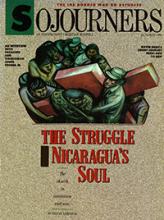THE LORD GOD HAS GIVEN ME the tongue of those who are taught, that I may know how to sustain with a word those that are weary. Morning by morning God wakens, God wakens my ear to hear as those who are taught.
The Lord God has opened my ear, and I was not rebellious, I turned not backward.
I have my back to the smiters, and my cheeks to those who pulled out the beard; I hid not my face from shame and spitting.
For the Lord God helps me; therefore I have not been confounded; therefore I have set my face like a flint, and I know that I shall not be put to shame; God who vindicates me is near.
Who will contend with me? Let us stand up together. Who is my adversary? Let them come near to me.
Behold, the Lord God helps me; who will declare me guilty? Behold, all of them will wear out like a garment; the moth will eat them up.
(Isaiah 50:4-9)
THE TEACHABILITY of the servant fits her for vocation (verses 4-6). She is disciple, listener, attentive to the voice of Another. And in that act and attitude, she is apt for being the disciple of truth and salvation for others.
The connection is of the essence. The beat goes on.
Pain enters the scene, along with persecution and setback. No smooth sailing for the servant of truth; the message is troublesome to worldly goings-on.
Things as they are, politics as they are, war, war preparation, maltreatment of the innocent--these have hardened into a dogma incised on tablets of stone. The conduct of authority, rather than a highly scrutinized, accountable arrangement, justly subject to recall, operates on its own.
The message stirs (apparently) calm waters. The waters in fact stink with pollution. Someone named Isaiah has a keen nose; therefore trouble.
Read the Full Article

